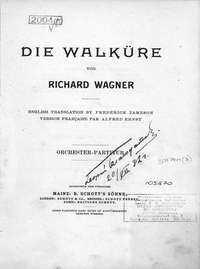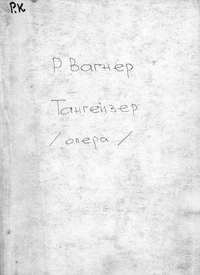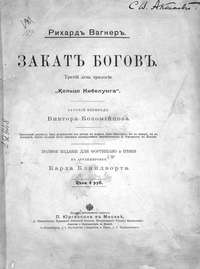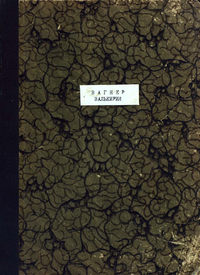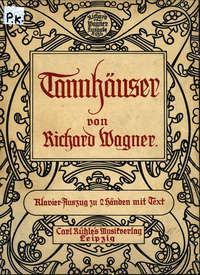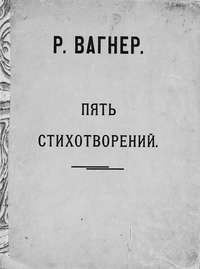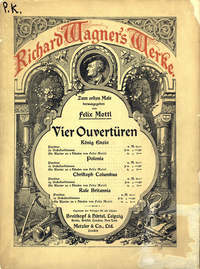 полная версия
полная версияThe Valkyries
"Water, water," he said; "thou hast given me water, and I give thee thanks. Already – "
And he paused, and the bear-skin stood away from the braced arm. "Already I am my own master again. That was all I needed."
Yet that was not all, for he sank back again to his elbow in the bear-skins, and he gazed at her.
"Lady, I thank thee," said he. "Thou hast wakened me, thou hast welcomed me. The sleep and darkness of my faintness stands away from me. So tell me: whom is it that I thank?"
Just then the firelight died down, and from flame there was but a mere glow on the walls. Only in the darkness the glow lit on the hilt of the sword that a stranger on the day of her marriage feast had thrust in the ash-stem, and on the head of a stranger who lay at the hearth. Yet wondrously spring bubbled in her heart, though as yet she knew nought but that only a wayfarer had happened here, and that she had relieved his sore need.
"The house is Hunding's," said she. "She who gave thee drink is the wife of Hunding," and at that the hatred of her man rose bitter and deadly in her throat "His guest – the guest of Hunding art thou. Abide then here, he will soon be home."
Thereat a sudden log caught fire in the hearth, and in the blaze she saw the colour fly to his face, and the light from the firelight sparkle in his eyes. And they were grey, but blue was behind them, as if a summer cloud flecked the open heaven.
"There is no harm," said he, still weak from his adventure, and loth to meet her gaze; "I am without weapon. He would not grudge a weaponless guest such harbourage, though his wife is alone with him and tends to him. Also I am wounded."
"Wounded!" she cried; and again there was nought but pity in a woman's heart for a man in distress, pity and the need to give help. "Where art thou wounded? Let me see to thy hurt."
Again he raised his eyes to her, and at the sight his blood beat quicker, and resumed its more wonted way, and, refreshed of his faintness by the water she had brought him, he shook the hair back from his white forehead, and though not yet enough himself to stand up, sat erect on the bear-skin, rejoicing to feel the life return in warmth and tingling to his limbs. And he thought no more of his wounds, for it was of the gracious woman who faced him that he thought.
"Ah, they are nothing," he said. "They are not worth the words we have already spent on them. See! my arms will serve me yet," and he thrust out first one and then the other with vigour, so that the muscles stood out on them like cords, and in turn he clenched his hands. "Would that my shield and spear had served me as well," said he; "then should I not have run from my foes, but my shield was shivered, and my sword broken. Yes, I am a man who ran from his foes. What else could I do? Often through the forest they were close behind me, and often the branches through which I plunged had not yet closed behind me, when one or another of my foes was lashed by the back-stroke of the twigs. But now, faster than my flight my faintness leaves me. Faster than the storm, which all day has buffeted me, riding on the wings of the wind, my strength returns; my fear and the night and darkness which closed over my senses roll away, and the sun comes out again."
Low burned the firelight on the hearth; and in the darkness she could scarce see the stranger's face, but the music of his voice beat on her ear, and within her, her heart beat in tune to it And a sudden tumult shook her, and she sprang up, feeling the need to do something, not to watch only for the upspringing of the fire so that she should see him, nor to question him so that his voice should sound on her ear. So again she took the drinking-horn of Hunding, and fetched honey from the store-chamber, and made within it the yellow mead, and handed it him.
"Drink," she said. "The water has given thee life; take thy strength again also."
"Drink thou first," said he.
So Sieglinde took the horn and sipped it, and gave it back to the stranger. And he, putting his lips where hers had touched the horn, drank deeply of it, and bowing his head in thanks gave it back to her. As he did so, again the fire shot up and prospered on the hearth; each saw the other more clearly than before, and the woman was fair and the man also, and in each grey eyes were shot with blue, and the yellow hair of each was of the same brightness. Long they looked at each other undismayed, he, because he must soon depart, and this one long look could hurt neither, unless a little heart-ache were a hurt; she, because her dreams had become suddenly coloured with life, and because she hated Hunding.
But there comes an end to all moments be they sweet or bitter, and soon he got up. Tall was he as Hunding, but his form was slight as of a youth but lately come to man's estate, but in the clean lines of arm and leg there was strength and swiftness.
"Thou hast refreshed my faintness," said he. "Thou hast given me life again. And for thanks what can I say? This only: may sorrow ever be a stranger to thee. May happiness be ever about thy home. I am rested and refreshed; I will go on my way."
Then her heart awoke, and told her that she could not let him go. Already the fire of love was beginning to burn within her, and her dreams every moment were flushed more deeply with life. And though her voice was half strangled in her throat, she answered him lightly: "Why such haste?" she said; "wait a little longer."
He paused on his foot and looked at her.
"That would be but poor thanks for thy kindness," said he; "for wherever I go I bring sorrow with me, sorrow and ill-luck. If thou wert my enemy I would stay; it is because thou hast been good to me and gracious that I go, taking my ill-luck with me, that it should not abide untowardly in thy house. So I delay not, but go," and he turned quickly and went to the door.
Then when his hand was on the latch, and in the next moment he would have gone forth into the night, and out of her sight for ever, her heart again would not suffer her to remain dumb. Little of sorrow or ill-luck could he bring to her while she abode still in the house of Hunding, for all the sorrow in the world, or so it seemed to her, was hers already, nor was there any ill-luck which he could bring which should be comparable to that which was ever about her house and about her bed, and sat at meat with her.
"There is no sorrow thou couldest bring me," said she, "for it is mine already. Look on these walls; they are builded firm, and it is of hate they are builded. Sorrow and hate and ill-luck were the masons, and they have built well. Look! thou wilt find no cranny nor chink. O, I have a well-established house!" and she laughed with sudden bitterness. "So stay," she said, and her voice quivered like an aspen leaf.
By now the logs that Sieglinde had cast on the hearth against Hunding's return were fully caught, and loud laughed the firelight on the walls. In that brightness they saw each other more clearly yet, and the long look that had passed between them was again renewed. Other fires, too, were burning, for each now felt much pity for the other – Sieglinde for the stranger in that he was lonely and the quarry of ill-luck; the stranger for her in that when love should have been blossoming in her home, the strong poisonous flowers of hate were there instead. But as she spoke, the latch fell from his fingers, and he slowly returned and sat down by the hearth.
"Yet I have warned thee," said he. "Woe is my name, and if thou fearest not Woe, thou fearest not me. I will wait for Hunding to thank him for the rest and refreshment I have found in his house."
Then though Sieglinde's heart rejoiced that she had stayed his going, yet she was troubled. For though nothing could have been more right than that he should wait for Hunding, her lawful lord, yet she knew why she had bade him stay, for the woman in her called for man. And in silence she lit the lamp and placed it on the table; and in troubled silence she made all ready for Hunding's coming. Not long did she wait, for in a short space she heard the stroke of his horse's hoofs on the stones without; she heard him lead the beast to the stable and shut the door; she heard his step again outside and the jar of the lifted latch.
Then she looked once more at the stranger and he at her, and with that the door opened, and Hunding, black as the night outside, stood there. Then seeing a stranger by the hearth he paused, with the door still swung open, and looked with an unspoken question at his wife. From without came in the warm breath of the spring night, and the dwelling-place was filled with it, as the vats are filled with the odours of the wine when the vintage time has come, and in the heart of Sieglinde the flowers of hate burst into passionate blossom, and with that growth was mingled another.
CHAPTER III
THE STORY OF THE STRANGER
For a moment there was silence. Then said Sieglinde: "I found him here by the hearth, Hunding; he was faint, his foes pursued him."
Hunding looked darkly at her, and more darkly yet at the stranger. He on Hunding's entrance had turned himself, and risen from his seat, as if to greet his host; but even as his greeting was on his lips he had paused, for there was something in that black look which made him feel some echo of Sieglinde's hate.
"It is ever well to help the helpless," said Hunding evilly. "Thou gavest him refreshment?"
"Even so," said she. "He was my guest – your guest; faint by the hearth I found him. He waited for your coming." Not a smile of welcome did Hunding give, for it was not his way to smile; and already in his black heart hatred blackened towards his guest, and suspicion, ere yet it came, cast its shadow. And as his host did not greet him, neither did the stranger greet his host. Yet he could not bear that the woman should be blamed for what he had done. His was the blame.
"I was shelterless," said he, looking at Hunding. "She sheltered me. I was faint: she revived me. Is there blame in that?"
"Blame? Who talks of blame?" said Hunding more blackly yet. "My hearth is holy: not otherwise has any guest of mine found it, and guest of mine art thou. Inviolable are these laws."
And without more words he turned to Sieglinde, who, as her custom was, took his weapons of hunting and hung them up on the ash-tree beneath the gleaming sword-hilt Hunding hated the sword-hilt, for he had not been able to move it, and he knew that in this world there was but one who could. On that day also he knew trouble would come to his house. But he told Sieglinde to bring supper for him and his guest, and as she moved about her work, he stood beneath the ash-stem and looked from her to the stranger and back again. Each was cast in noble mould, and they were strangely like the one to the other, for the head of each was bright with sunny hair, and in the grey eye of each was seated some secret sorrow. Tall was his wife, and tall the stranger, and the skin of each was fair as the skin of a child, and as smooth. For himself he felt like a base-born man in the presence of the gently bred; and as he looked he hated each, and the shadow of his suspicion grew darker. Then he turned to the stranger, and speaking like a man who conceals nought —
"Thy way has been long," he said, "and thou hast no horse. Where hast thou come, and whither goest thou? What journey has thus travel-stained thee?"
Then said the stranger: "The storm and the foe have driven me far, and by what way I know not. And where I have come I know not, for my way was long, and the heavens and earth were blinded with tempest. Tell me then where I have come."
And as Hunding looked on him again, the likeness of the stranger to his wife smote on him like a blow; and again he looked from one to the other, as Sieglinde brought in venison and the fresh-baked bread, and put them ready on the table. But he answered him with seeming frankness.
"It is to Hunding's house thou hast come," he said, "and under the roof of Hunding thou hast rested. Not here is the home of my kindred, but far away to northward; and they of my blood are mighty and many. Be seated then, guest of mine, and in return tell me thy name."
So the stranger seated himself, and when he was seated Hunding sat down also, and Sieglinde, who had finished the serving, sat by her husband opposite to their guest, and her eyes dwelt ever on him very steadfastly, and his on her, and neither took heed of Hunding, who watched them both. Eagerly she waited for him to tell them his name, expecting she knew not what; but as her eyes looked on him, she forgot even that Hunding had asked it, for she forgot all else except that in front of her and at her husband's table was seated the fair-haired stranger. As for him, his eyes were fixed in thought, as if he meditated on his answer. Yet since it was a strange thing that a guest should not tell his name to his host, again Hunding questioned him.
"Surely I would not press aught unwelcome on my guest," said he, "if he wills not to tell me. But see how my wife also waits for your answer. She too would fain know the name of her guest and mine;" and again he looked at Sieglinde.
But she took not her eyes off the stranger, for the sight of him fed her heart, making her content. And though she cared not to know his name, she could not but do her husband's bidding, and she too asked him his name, if so be he would be willing to tell it.
Then again for a long moment was the stranger still silent, but at the last he raised his eyes and looked at her, and some secret sympathy passed like a wave between them; and he spoke to her only.
"My name is Wehwalt, the man of Woe," said he, "for mine is the portion of sorrow, and my father was called 'The Wolf.' He begat twins, a sister and myself; but while I was yet so young that I scarce knew her name or the name of my mother, the Wolf, my father, took me into the forest, there to rear me up to be strong and warlike, even as himself. Strong too and warlike were his foes, and there were many of them. Then, after years, one day he took me home, but no home found we there, but only the burnt ashes of what had been. There lay my mother, fallen and dead in defence of the hearth, but of my sister no trace was left. Such was my home-coming."
He paused, but took not his eyes from Sieglinde's face, and his voice rose in sudden fire as he went on with his tale.
"The treacherous Niedings had done this," he cried, "and deadly was their work. Bitter and relentless they pursued us, and for years my father and I lived a hunted life in the forest, beset with our foes. Yet ever his courage and his cunning avoided the snares they set for us, and, by the side of the Wolf, the Whelp grew up through boyhood to early manhood."
Thereat he paused again, and turned to Hunding.
"That Wolfs whelp tells you the tale," said he.
Now at the words of the stranger the suspicion that had hung over Hunding's heart like a poised hawk grew suddenly nearer, as if it stooped to its prey, for even in the manner in which the stranger told them his sister had been lost to him, in that manner was his own wife won. Well he remembered how the mother fought for the daughter, but at the end she was slain, and the house burnt, and the girl carried off by force; and again the strange likeness of the two struck on his heart. As for his wife Sieglinde, her face was a mask, and she only gazed at the stranger with wide, grey eyes, and what she thought no man knew, and least of all her husband. Also he had heard stories of the Wolf and the Whelp, as the forest folk called them, and now the Whelp told the tale himself. But since he must needs know more yet, he curbed himself.
"Wehwalt," said he; "Wehwalt, the Wolfs whelp, it is a strange story that thou tellest us. Of thy name in stories of strife and war I have heard men tell. Yet saw I never the Wolf thy father nor his son till to-day."
He would have said more, but Sieglinde, her eyes all aflame, interrupted him. "Tell us the rest," she cried, and her voice strangled in her throat, for if Hunding remembered how his wife was carried off from the burnt home, should not she remember? "Tell us where thy father is to-day? Where is his home? Is it near – is it near?" she cried.
Then the stranger shook his head.
"Thou shalt hear," he said, "and I will tell thee all. For after the burning of the house, and the murder of my mother, and the seizing of my sister, ever more fiercely did the accursed Niedings press on us, for the blood, maybe, had whetted them. But the Wolf was ever stronger and more cunning than the men, and day after day he drove them through the forest, and in his paths the dead lay thick. Even as a ship scatters the spray in clouds before its bows, even so they fell off spent from his advance, and he passed on over them, I with him, heeding them as little, as they writhed in their death agonies, as the ship heeds the billows it ploughs through. Thus fared we till the day came when my father was not. A wolf-skin I found in the forest, but of him no trace. And whether he is dead I know not, or whether," and his eye brightened "whether he was not of mortal birth, and his work there was finished, and he went whither he would."
For a moment he paused, and on one side the eager grey eyes of the woman met his, and by her sat her husband, whose black eyes smouldered with hate that was scarce concealed. But in the light of the grey eyes he forgot the black.
"Wanting him," he said, "I left the forest and lived among men and women of civilized race. Yet wherever I went, whether I sought for friend only, or sought for wife, I prospered not, and he who should have been friend turned from me, and she whom I sought for wife thought scorn of me, for ill-luck was ever about my path. Did I think a thing right? That was enough: to all others the deed seemed foul. Did I think a deed false? To all others it appeared fair. And thus I was at war with the whole world. About my path watched hate, and anger against me grew like weeds in the bush. Did I seek for joy? Bitterness was mine, and woe and sorrow. Thus came I to call myself Wehwalt, for woe was my fate. So I named myself to fit my fate."
Then Hunding wiped his mouth, for he had made an end of eating, and laughed bitterly.
"Truly then thou hast named thyself," said he, "if none to whom thou goest as a guest is glad at thy coming, and slow to love thee, and grieves not when thou goest And indeed such seems to be thy case."
At that Sieglinde turned and faced her husband, as she had never faced him before.
"Ah!" she cried, "there speaks the coward, Hunding. For who but a coward would insult a man who is alone, and who is weaponless?"
Then she turned to the stranger again.
"Guest of mine and of Hunding's," she said, "thy tale is but half told. How came it that thou art without thine arms? Where is thy shield and thy sword and thy spear, that thou goest at the mercy of every coward?"
At that Hunding laughed, for he was minded to be amused. But she heeded not, and but listened for the stranger's words.
"It was thus that I lost my shield and spear and sword," said he; "for I went to help and to rescue, if so be I could, a maid whom her kin wished to marry to a man she loved not. To me she came for help, and help I gave her, for I bethought me of how the Wolf would descend like a hill-top storm on to his foes, and I, his whelp, could do no other way. So hewed I and hacked among the cruel kin, for rage was in my heart, since it was by such unhallowed wooing that I had lost my sister, and I cleared the homestead of her evil clan. Two brothers had she, who would make the marriage, and for them I made a funeral instead of a marriage for their sister. But at that – ill-luck still following me – the tenderness of the maid awoke, and she wailed their loss, and her grief conquered her erstwhile cry for help. Thus for me who had delivered her she had only curses. Then, as I waited there, from every side swarmed out the kith and the kin of those whom I had done to death, so that the forest was thick with them. Yet the maid still bewailed her brothers, and cursed me for their death, and cursed herself for that she had bidden me to aid her, and so compass it. With my sword I still defended her, for her kin were thirsty for her blood, and with my spear I sent more to their account, till at the end my sword was shattered, and my spear sundered. Then with these eyes I saw them murder the maiden as she still bewailed her brethren; and since I could do no more, I fled from before their faces, while she, dead, crowned the heaps of dead. So fled I, and came hither."
Then again he paused, and looked at Sieglinde with a pitiful entreaty.
"Thus is it with me," he said, "and thus it has always been with me. Am I not right then to name myself by a name of woe? Has peace or joy any lot with me?"
And the stranger got up, for he suddenly could bear her gaze no longer, and walked to the hearth. And she, when the magic of his gaze was withdrawn, turned pale suddenly, moved more deeply than she knew had been possible. Only Hunding still eyed him with growing hate and certainty. Already he knew enough, and his vengeance, so he swore to himself, should soon be complete. And he rose also and faced the stranger.
"Truly ill-luck has guided thee here," he said; "and ill-luck planted thy feet when they came to the house of Hunding. For have I not often heard of the race to which thou belongest? And thou spakest truly when thou saidst that thy coming gave no joy to any host, for thou art of a wild, unhallowed breed, whose right is wrong in the eyes of all the world of men, whose true is false, whose false is true. All day have I been nearer to thee than thou knewest of, and the adventure thou hast told us is not yet complete."
With that he drew nearer to the stranger.
"It is now my turn to tell my guest of myself," he said, "and let him know where my feet have borne me. It was kin of mine whom thou hast slaughtered in impotent defence of a maid of my race; my kin are the brothers you killed, and all day I have been on the track of him who killed them. But all day have I been too late, though fast on the trail. Yet when I return home, whom find I at my hearth? Him, the murderer of my kin. Thus there is blood already between us, and ever shall be."
At his words his wife Sieglinde rose with terror and pity in her face, and drew near to the two men. But Hunding heeded her not.
"To-night," he said, "thou art guest at mine; that must needs be so. But at dawn to-morrow, Wolfs whelp, I am thy host no more, and thou shalt answer for the blood of my kindred which thou hast shed. Hast thou no arms? So much the worse, for thou wouldest be safer for a sword, and at sunrise we meet. To-night we are host and guest, but a dawn to-morrow be ready to meet me as the avenger of my kindred."
At these words Sieglinde could contain herself no more, but came quickly up, and placed herself between the two men.
"No, no!" she cried. "It cannot be, Hunding."
Then his wrath flamed up. "Hence, go hence," he cried; "get to thy work, and make ready my night-drink; go from the hall."
At his words she fell back, still pondering with her quick woman's wit as to how she could avert this. From the table she took the drinking-horn, and from the cupboard the spices with which she made the hot, fragrant draught which Hunding loved. And even as she turned to leave the hall, sudden and high like a summer fire in the forest her love for the stranger flamed in her heart, and with love a sudden wild up-springing of hope. He still stood by the hearth, scarcely heeding Hunding's words, for his eyes ever followed her, and as she was even now on the threshold, she cast one long glance at him, and then, as if leading his eye thither, looked to where the hilt of the sword in the ash-trunk glimmered in the firelight. Then she looked back to him, and knew that he understood not, for how should he understand?
But Hunding saw that she still lingered, and with furious finger pointed her forth, and she left them. Then he took his arms from the tree.
"Words for women, and weapons for men," said he. "Wolfs whelp, we meet to-morrow."
And he strode from the hall into his bed-chamber, leaving the stranger alone.
CHAPTER IV
THE RECOGNITION
So Hunding went forth and left the stranger alone with the leaping flames and shadows from the hearth. Long pondered he on what the day had brought forth, and what should be the burden of the morrow; but through all his thoughts there rose like a flame of dancing fire the thought of the woman Sieglinde, and of his love for her, and how he could help her to leave this house of hate. Weaponless was he, and her husband had mocked at him for it. Then his thoughts went backwards to the old wild days in the forest when he and his father, whom he had called by the name he was known to men, were the swift terror of their foes. And at that a sudden hope sprang up within him, for he remembered how his father had told him that when his need was sorest, a sword should be near him. Surely now his need was sore enough, yet where was the sword? At that he cried aloud on his father's name, the secret name known but to him, and "Walse, father Walse!" he cried, "show me the sword, for my need is sore."


